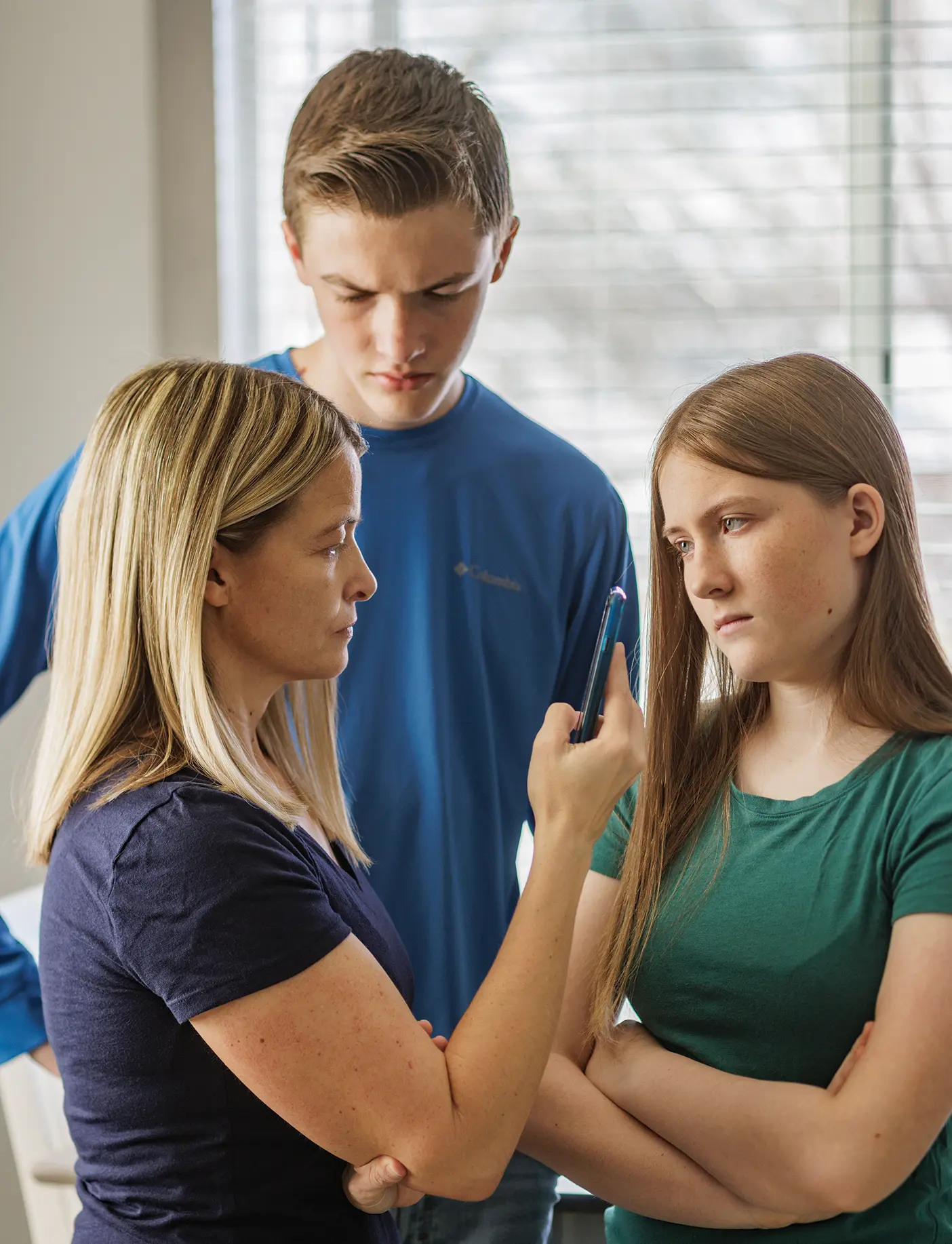Parents’ unhealthy social-media habits may put their children at risk.

Asking your teen to tell you about their day while they’re texting can be frustrating and fruitless. However, your kids may feel just as frustrated when they try to talk to you while you’re posting family photos on Instagram and getting distracted by your phone.
While it’s natural to want to protect teens from the harmful effects of excessive time on social media by withholding a phone from them or setting restrictions around screentime, a study led by BYU professors Sarah M. Coyne and Spencer James (BS ’06, MS ’08) suggests kids benefit when parents first take a hard look at their own media practices.
The study found that depression was higher in teens whose parents reported high levels of personal social media use. About 40 percent of teens whose parents used social media at high levels (more than 7 hours per day) were depressed, compared to only 10 percent whose parents used social media at lower levels (less than 30 minutes per day).
Nearly half of the teens in the study said their parents allowed technology to interfere with their interactions in the home, something the researchers refer to as “technoference.” Among teens who reported high parental technoference, 63 percent struggled with feelings of depression.
“When a parent routinely uses social media while their child is trying to get their attention, it sends the message that the child is not seen and valued by the parent,” says Coyne, family-life professor and lead author of the study. “That can affect a child’s state of mind.”
With such high stakes for the mental health of teens, there’s never been a better time for parents to be aware of the impact of media habits, says Coyne. She suggests four things parents can do to create healthy media use patterns for their families.
1. Model healthy media use.
Parents set the tone for the media climate in the home. “It’s easy to be so focused on a child’s media use that sometimes we forget to turn the mirror to ourselves,” says Coyne. Being mindful of how and when you use social media while with your children can help create healthy media environments at home.
2. Build relationships and limit technoference.
Children value strong connections with parents, and your undivided attention is important. Coyne notes the most important thing a parent can do is to build a strong relationship with a child: “It’s less about social-media use and more about parenting in general. Limiting technoference goes a long way in strengthening your relationships.”
3. Help children think critically about their media use.
The study found that parents talking to teensabout media and how to evaluate media habits helped protect teens’ mental health. Coyne says parents can be proactive in having natural conversations about media. “Parents might ask, ‘What do you like about this social-media platform?’ or ‘How do you feel about social media?’ and then listen to what the child says.” Such questions will lead to a discussion about media literacy while reinforcing love for the child.
4. Create balanced guidelines.
The study suggests that strict rules around media use tend to backfire. The highest rates of depression among teens were reported by those whose parents had imposed the highest levels of rules and restrictions. That doesn’t mean you shouldn’t have any media restrictions for your children, says Coyne, but it does suggest that parents and children should try to understand each other and implement guidelines that are appropriate for each child and each situation.












